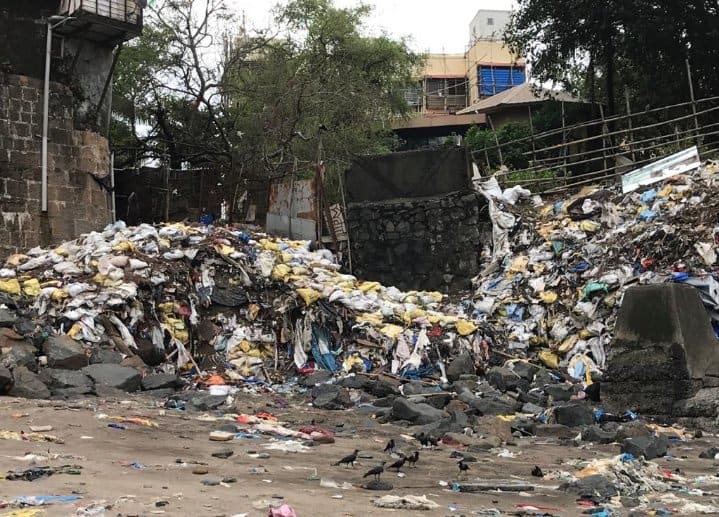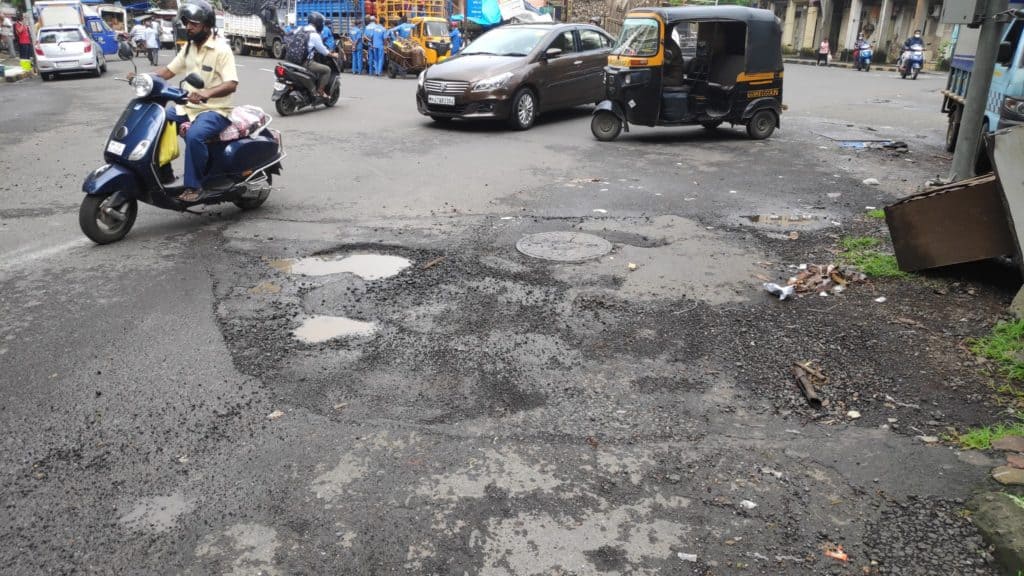Mumbaikars have multiple avenues for lodging complaints to civic authorities. The toll-free number 1916, MCGM website, MyBMC 24*7 mobile application and even written complaints form the centralised complaint registration system (CCRS).
Through a SAP (a data management software for enterprise and resource planning) interface, the complaint gets routed to an officer in charge of the particular department in the complainant’s ward. The complaint can then be tracked, escalated and given feedback on.
However, this process has faced several glitches in the recent past. So much so that residents have begun using social media instead to draw the attention of the authorities to their problems. This has broader ramifications for city’s governance in the longer term.
While analogue forms for submitting complaints – through calls or writing – require an officer to input the details into the system, the MCGM website and mobile app, available on Android and iOS app stores, allow citizens to do so on their own.
Read more: The easiest way to fix Mumbai’s potholes is to complain on Twitter
One stop app for all troubles
The MyBMC 24*7 app, in particular, was positioned as a one-stop service delivery station, with the claim that it would allow citizens to pay rent, taxes, water bills, renew shop licenses, as well as raise and track complaints on all civic issues. These could range from reporting uncovered garbage lorries, unauthorised construction, delays in transfer cases to child labour and the non-provision of minimum wages.
However, ever since its release in 2014, it has seen multiple complaints of defectiveness. News reports recorded trouble with registration on the application. Since all the services were only accessible after login/registration and registration didn’t work, new users were barred from using the app.
The issue continued to be a problem according to most reviews in 2021, till an August 6 update cut out the mandatory registration at entry. Services such as property tax payment, toilet and parking locators are yet to be functional, and payment of water and tenancy rent bills still require registration.

“The 24*7 app doesn’t work, and even if it does register a complaint, it marks it as resolved without it having been attended to,” said Mushtaq Ansari, a civic activist who runs the Twitter account @potholewarriors. “Recently when I tried to log a complaint from the app, it did not work for me. So I complained through 1916,” said Research and Data head at Praja Foundation and resident of Goregaon, Yogesh Mishra.
Nazia Eisa, who complained about the garbage dumping at Mahim Fort in April, saw no action despite having her complaint assigned to the requisite department.
Its scant rating of 1.6 calls into question the impact of its 100,000+ downloads on the Play Store.
Separate app for complaints on potholes
Perhaps due to their ubiquitous presence in the city, the option to report a pothole redirects the user to a separate, dedicated app: MyBMC Pothole Fixit. The crowning app of Maharashtra’s push towards e-governance, it had its first run from 2011 to 2015 as Voice of Citizen. Its initial response was so lacklustre, it received no complaints in its first month and barely 340 downloads in the first five. But from the 1538 total pothole complaints received in 2011, the number shot up to 26k in 2012 and 38k in 2013. After it was shut, the number decreased to 5841 in 2016.
The app was brought back in 2019 with a weeklong ‘Pothole Challenge,’ promising Rs 500 if the submitted pothole (with/in a selfie) wasn’t filled within 24 hours. 1630 potholes were logged, of which 1472 were filled within the requisite hours. It has had, more or less, a steady run ever since.
From 25 June to 24 July, 437 pothole complaints came in through the MCGM run mobile app, MyBMC Pothole Fixit. Compared to last year, this is a 38% increase.
Lockdown rules had a gutting effect on the complaints received by the app in 2020, decreasing the year-round plaints from 5,928 in 2019 to a mere 1,739.
“Citizens’ complaints have seen a decline in 2020 as compared to 2019 for almost all issues and this can be attributed to nationwide lockdown,” read the 2021 report on Status of Civic Issues in Mumbai released by Praja Foundation. The overall number of complaints saw a 27% hit, dropping to 93,774 from 1.28 lakh, and total pothole complaints fell drastically to 3,914 from 13,019.
Twitter takes the cake
Due to the inefficiencies in the applications, Twitter is unarguably the most popular route of logging complaints among Mumbai’s residents.
The @mybmc account is followed by over half a million accounts, and is tagged day in and day out with complaints of potholes, open gutters, spilt garbage, water leaks, fallen trees, fumigation needs etc. Replies arrive in time, and if sufficient information is present, redressal is assigned to the ward the charge lies within. Photographic evidence of a job completed is often posted later.
Other official handles of governing authorities, such as @MumbaiPolice, @mybmcRoads and @myBESTelectric (the electricity arm of BEST), also receive and respond to complaints regularly. These are tasks primarily of delegation, which hints at the poor awareness of the automated systems for complaints available.
“Not many people know of the apps. I too had forgotten about the Pothole Fixit app and recently reinstalled it,” said Ansari. Back in 2018, Ansari and a friend had gone on a whack-a-mole spree on potholes, hammering them in with bricks and debris to save motorists like themselves. Their posts on Twitter were met with encouragement and requests to fill other potholes, till the BMC asked them not to do so. “The BMC became very active on Twitter in 2019, and they would reply to our tweets within minutes and fill up potholes within 24 hours,” he said.
Today, Ansari uses his Twitter account to amplify tweets on civic issues to call attention of BMC’s official accounts.

No record keeping
This relative convenience comes at the expense of much valuable data. “Complaints made on social media don’t come under the CCRS, which makes them difficult to track. Taking the route of social media is fine if your complaint isn’t being addressed. But for governing a city, you need to have all the complaint data collated in one place,” said Yogesh Mishra of Praja Foundation.
It is the complaint records – accessed through RTI – that have enabled Praja Foundation to chart the performance of urban governance in handling civic issues in Indian cities. Their annual reports detail the ward-wise prevalence of different issues, alongside an analysis of the budget and performance of ward committees.
“If an area has a problem of waterlogging and citizens complain about it on social media, the individual problems might get resolved but the complaints won’t get accumulated. How will the area’s elected representatives then know that it is a wider issue? Only if they know the scope can they discuss it in forums and come up with a permanent solution” said Mishra.
The quantitative data is also key to accountability. The Praja Foundation report found that the average number of days taken to resolve complaints went up to 39 in 2020, almost a 30% increase from the 2019 average of 30. The report contains this information segregated by ward and issue, which can direct both officials and citizens towards areas in need of improvement. Further, complaints logged through the CCRS come with an Action Taken Report (ATR) and can be escalated to upper departments, if the action taken is not satisfactory to the complainant.
The informal and non-uniform space that is Twitter is not very conducive for such data inferences. Attempts to use AI-powered software to build such a database have yet to be successful, according to a BMC official, who didn’t want to be quoted because he’s currently on a sabbatical.